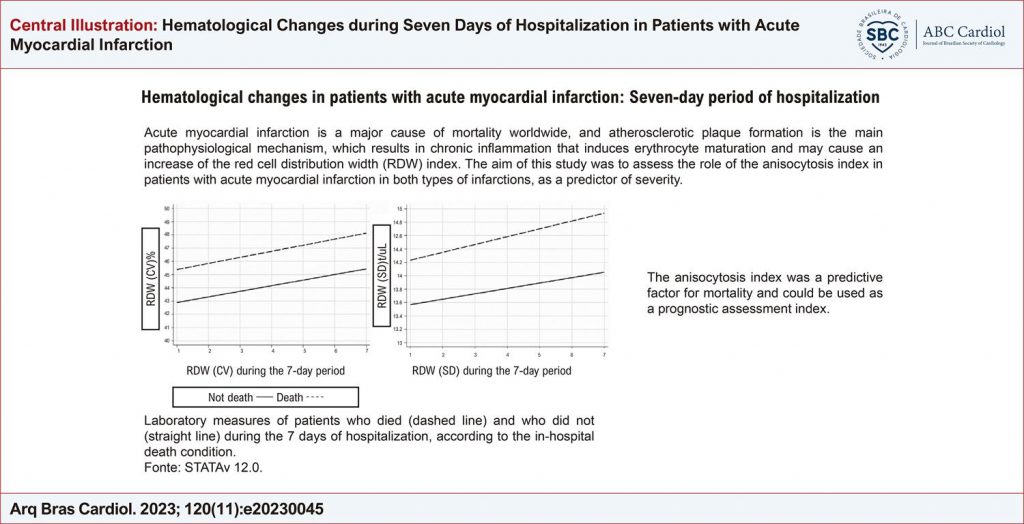Arq. Bras. Cardiol. 2023; 120(11): e20230045
Hematological Changes during Seven Days of Hospitalization in Patients with Acute Myocardial Infarction
Abstract
Background
Acute myocardial infarction is a major cause of mortality worldwide, and atherosclerotic plaque formation is the main pathophysiological mechanism, which results in chronic inflammation that induces erythrocyte maturation and may cause an increase in the red cell distribution width (RDW) index.
Objective
Evaluate the role of the anisocytosis index in patients with acute myocardial infarction in both types of infarctions as a predictor of severity.
Methods
Patients were included in the study according to the inclusion/exclusion criteria, following the hospital routine based on their clinical and laboratory history. Statistical analyzes were performed according to each variable. All conclusions were drawn considering the significance level of 5%.
Results
During the follow-up period, in the 349 patients analyzed, the mortality rate was associated with the variables RDW (CV) and RDW (SD), in those patients who died, an increase was noted, as demonstrated in the multivariate model, for the effects of an acute ST elevation myocardial infarction and the RDW, adjusted for confounding factors (p-value = 0.03 and 0.04). In contrast, the total number of erythrocytes (p-value = 0.00) and hemoglobin (p-value = 0.03) showed a decrease during severe patients’ hospitalization.
Conclusion
The anisocytosis index was a predictive factor of mortality and can be used as an indicator of worse prognosis in patients with acute myocardial infarction.
969

